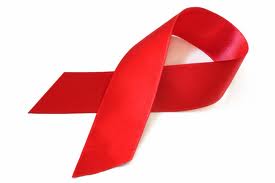No shortage of HIV test kits and snake anti-venom drug
Enoch Darfah Frimpong
Health
 The Director for Procurement and Supply at the Ministry of Health (MoH), Mr Samuel Boateng, has denied claims that there is shortage of HIV test kits and snake anti-venom serum.
The Director for Procurement and Supply at the Ministry of Health (MoH), Mr Samuel Boateng, has denied claims that there is shortage of HIV test kits and snake anti-venom serum. According to him, the MoH had stock of both supplies and, therefore, appealed to regional health directorates to ensure that they had supplies to cover the districts.
Reacting to reports that there was shortage of the snake bite serum and HIV test kits, Mr Boateng said no such shortage had been reported to the ministry.
He conceded that there had been shortage of the snake anti-venom serum between November and December 2012 but said the problem had been solved, noting that currently the MoH stores had over 5,000 pieces of the serum.
The serum is effective on most snake bite victims but only if it is administered within an extremely narrow period of time after the bite.
On the issue of the shortage of HIV test kits, Mr Boateng said with the current dwindling of the Global Fund, which supported HIV and AIDS programmes in the country, the fund was now focusing on prevention of mother-to-child transmission (PMTCT) so that pregnant women did not infect their babies.
The Global Fund, the main financier of treatment for people living with HIV and AIDS, will, from April 2013, withdraw its support for HIV and AIDS programmes in the country as a result of inadequate funding support.
Its five-year support for the treatment of over 49,000 people living with HIV and AIDS in Ghana ended in April 2012 but it was extended to April 2013.
However, Mr Boateng said there were still adequate supplies of HIV test kits at the regional hospitals.
He, therefore, called on any voluntary counselling and testing (VCT) sites which did not have the kits to go through the appropriate channel.
He said to ensure that the withdrawal of the Global Fund did not affect the availability of kits in the country; the government was arranging to procure more supplies for all VCT centres in the country.
Mr Boateng gave an assurance that as far as the ministry was concerned, there was no shortage of any of the two supplies locally.
From Kumasi, George Ernest Asare reports that authorities of the Komfo Anokye Teaching Hospital (KATH) have sufficient stock of the snake serum for the treatment of patients who might suffer snake bites.
The Director of Pharmacy, Mr Anthony Mensah, who briefed the Daily Graphic, said the hospital also had stocks of HIV and AIDS testing kits and drugs for the testing of patients and treatment of those living with HIV.
However, while the various district hospitals in Ashanti have stocks of anti-snake bite drugs for the treatment of patients, they do not have HIV and AIDS testing kits to determine the status of patients.
According to the Deputy Regional Director of Public Health, Dr Joseph Oduru, the various regional hospitals had the capacity of treating patients who might suffer snake bites.
However, he said, the district hospitals did not have HIV and AIDS testing kits to enable them to test the status of patients locally.
He explained that the National AIDS Control Programme was yet to provide such kits for the district hospitals.
Meanwhile, stakeholders in the Upper East Region have urged the government to notch up efforts at ensuring consistent, secure and affordable supply of medical commodities to boost HIV testing and treatment, writes Benjamin Xornam Glover from Bolgatanga .
The call came in the wake of a remark by Mr Samuel Angyogdem, the Upper East Regional HIV and AIDS Focal Person, that the recent shortage of HIV testing kits, anti-retroviral drugs and other logistics was hindering efforts at redoubling HIV prevention and treatment in the region.
Responding to the issue, Dr Joseph Amuzu, Director of Policy & Planning at the Ghana AIDS Commission (GAC), said the commission was working around the clock to secure HIV test kits for civil society organisations and other agencies for use.
He, however, reiterated the need for the government to fulfil
its commitment to support the national HIV response until 2015, adding that the release of funds must be predictable and timely.
He said ministries, departments and agencies should also budget for HIV in their regular budgets, while the 0.5 per cent of the District Assemblies Common Fund (DACF) allocated for district HIV response should be increased to one per cent and made mandatory and deductible from source.
Story by Rebecca Quaicoe-Duho